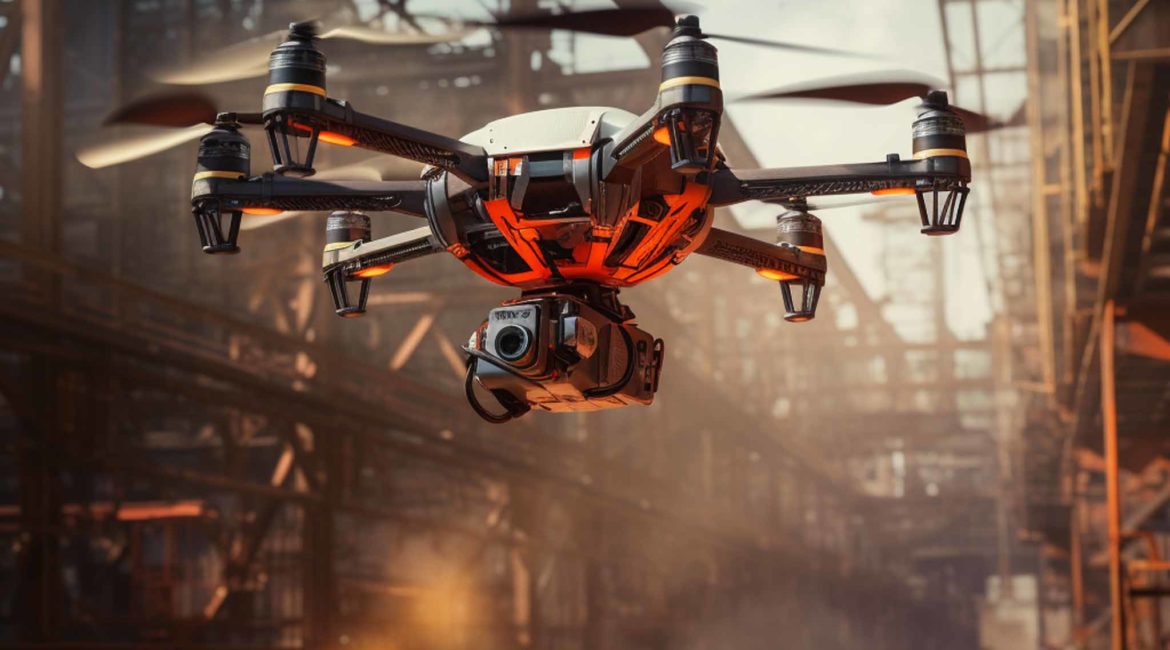Drones, once considered a novelty, have now become an integral part of various industries. These unmanned aerial vehicles (UAVs) offer numerous advantages in terms of efficiency, cost-effectiveness, and safety. With advancements in technology, industrial drones have found their way into a wide range of applications. In this article, we will delve into the fascinating world of industrial drones, exploring their diverse uses and the impact they have on various sectors.
Industrial drones, also known as commercial or professional drones, are specifically designed for applications in various industries. Equipped with advanced sensors, cameras, and other cutting-edge technologies, these drones offer unparalleled capabilities and have revolutionized the way many tasks are performed.
The Rise of Industrial Drones
In recent years, industrial drones have gained immense popularity due to their versatility and efficiency. The increasing demand for automation, data-driven decision making, and cost optimization has contributed to the widespread adoption of drones across different sectors.Agriculture and Farming
One of the significant applications of industrial drones is in the field of agriculture. Drones equipped with multispectral cameras and infrared sensors can provide valuable data on crop health, soil moisture levels, and pest infestations. Farmers can use this information to optimize irrigation, fertilizer application, and pest control, leading to increased crop yields and reduced resource wastage.
Construction and Infrastructure
Industrial drones are transforming the construction industry by streamlining various tasks. They can be used to survey construction sites, monitor progress, and create accurate 3D models of buildings and infrastructure. Drones also aid in inspecting hard-to-reach areas, reducing the need for human workers to perform risky tasks and enhancing overall safety. Energy and Utilities
The energy and utilities sector has also embraced the use of industrial drones for efficient operations. Drones can inspect power lines, wind turbines, and solar panels, identifying potential issues such as damaged components or maintenance requirements. By conducting aerial inspections, companies can save time, reduce costs, and enhance worker safety.
Transportation and Delivery
In recent years, there has been a growing interest in using drones for transportation and delivery purposes. Industrial drones can be employed for delivering small packages to remote areas, reducing delivery times and costs. Companies like Amazon and DHL have already conducted successful trials of drone delivery systems, showcasing the immense potential of this application.
Environmental Monitoring
Industrial drones are invaluable tools for environmental monitoring and conservation efforts. They can be deployed to assess air quality, monitor wildlife populations, and identify changes in ecosystems. By collecting real-time data, scientists and conservationists can make informed decisions to protect the environment and preserve biodiversity.
Film and Entertainment Industry
The film and entertainment industry has found creative uses for industrial drones in capturing breathtaking aerial shots. With drones, filmmakers can achieve dynamic perspectives and smooth camera movements that were previously only possible with expensive equipment. These drones have opened up new possibilities for filmmakers, allowing them to unleash their creativity and tell compelling visual stories.
Search and Rescue Operations
Industrial drones play a vital role in search and rescue operations during emergencies. Equipped with thermal cameras and GPS capabilities, drones can quickly locate missing persons or survivors in disaster-stricken areas. The ability to cover vast areas in a short time significantly improves response times and enhances the chances of successful rescue missions.
Security and Surveillance
The use of industrial drones for security and surveillance purposes has become increasingly prevalent. Drones equipped with high-resolution cameras and thermal imaging sensors can monitor large areas, enhancing the effectiveness of security systems. These drones provide real-time video feeds, enabling security personnel to detect and respond to potential threats promptly.
Mapping and Surveying
Industrial drones offer a cost-effective and efficient solution for mapping and surveying landscapes. With the ability to capture high-resolution aerial imagery and generate accurate maps, drones are widely used in urban planning, land surveying, and cartography. The data collected by drones aids in decision making, infrastructure development, and resource management.
Challenges and Considerations
While industrial drones offer numerous benefits, there are also challenges and considerations that need to be addressed. These include regulatory restrictions, privacy concerns, limited battery life, and the need for skilled operators. Overcoming these challenges through continued innovation and collaboration will pave the way for further advancements in the field.
Future of Industrial Drones
The future of industrial drones is incredibly promising. As technology continues to evolve, drones will become more intelligent, autonomous, and capable of handling complex tasks. With advancements in artificial intelligence, machine learning, and sensor technologies, drones will unlock new applications and revolutionize industries even further.
Industrial drones have transformed various industries, offering innovative solutions and improving operational efficiency. From agriculture and construction to security and film production, drones have proven their worth in diverse applications. As we look to the future, it is evident that industrial drones will continue to play a crucial role in shaping industries, enabling new possibilities, and driving progress.





